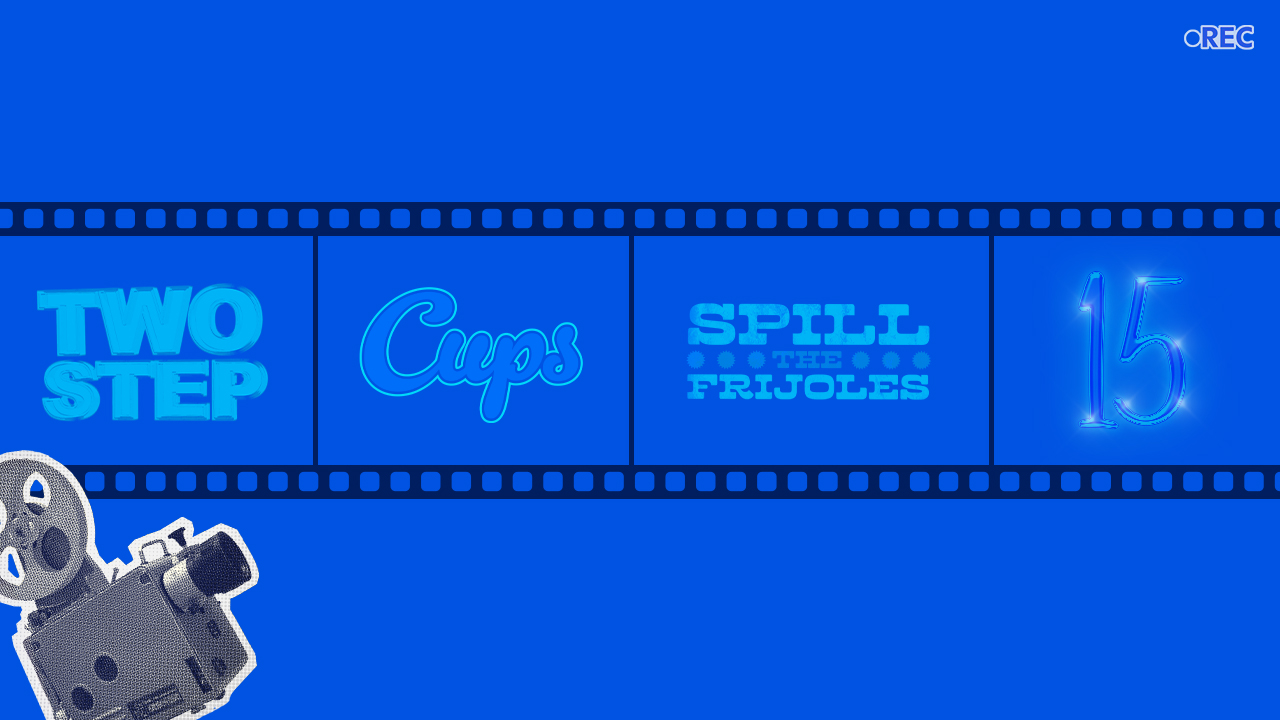🎬 That’s A Wrap on Season 3: Watch the mitú | Walmart Short Films Now
The mitú | Walmart Filmmaker Mentorship Program has closed its powerful third season by debuting the four original short films created by its talented cohort.
This award-winning initiative has once again empowered a new generation of Latino filmmakers. With resources, including a $50,000 grant from Walmart and access to its prop house, the program took filmmakers from script to screen in an accelerated 11-week format. It all culminated last Saturday night with a thrilling premiere showcase at the 24th edition of the Miami short Film Festival. Mentor and Emmy-winning director Oz Rodriguez moderated a special panel with the filmmakers.
The four filmmakers, Sophia Costanzo, Glenís Hunter, Eric Ibarra, and Stephanie Osuna-Hernandez, were selected from over 120 applicants nationwide. Their short films explore compelling themes of culture, transformation, identity, and other windows into the diverse experiences of the Latino community.
Four Films, Four Unique Stories Ready to Watch
The core of the program was the development of four short films, made alongside mitú film creatives and under mentorship from Oz Rodriguez. Here is a closer look at the four must-watch shorts, now available to watch
“Cups” by Sophia Costanzo
Sophia Costanzo, a Cuban-Italian American writer and director known for creating heartfelt, multigenerational stories that blend humor and authenticity, brings a story close to her heart to the screen with “Cups.” Inspired by her own experience playing Little League as the only girl on the team, this is a heartwarming story you won’t want to miss.
“Cups” focuses on a positive father-daughter relationship, a narrative that Sophia intentionally followed to counter common Latino stereotypes.
“This mentorship program encouraged me to keep finding ways to weave in culture and heritage throughout my story,” she says. “It’s also important to me to work against stereotypes we see in the media about the Latino community, like absent parents, and show, in this case, a positive father-daughter relationship on screen.”
“Two Step” by Eric Armando Ibarra
Chicano filmmaker Eric Armando Ibarra brings his globally recognized talent to “Two Step,” a film steeped in 90s R&B, quinceañeras, and the deep bond of siblinghood. Ibarra tells the story of a young boy named Eddie seeking advice from his older sister, his imaginary friend, and Tio Danny, so he can dance with his crush at a quinceañera. This film about youthful inspiration and cultural milestones captures the universal anxiety of growing up in this vibrant community setting.
“I’m excited for people to be transported to 2005 through production design, to be left in awe with the beautiful cinematography of the quince, [and] for people to hear the captivating score,” he says. “But if I had to choose one thing, I’m excited for people to experience a Latino story rooted in joy.”
“15” by Glenís Hunter
Bronx-born actress, writer, and filmmaker Glenís Hunter, a recipient of the Netflix Accelerator Grant, uses her background to craft engaging and often genre-bending narratives. Her film, “15,” is a magical story where a 40-year-old woman is transported back to her 15th birthday party. Inspired by her love of the 90s and her relationship with her dad, this short delves into the concept of time and missed perspective.
“With 15, I hope to explore what time really means to us and how we don’t have a lot of it, and the importance of family and food and standing up for yourself when it’s necessary,” she says. “There’s something really special about looking back at a time that you NOW see as important, but when you experienced it, it wasn’t important at the time.”
“Spill the Frijoles” by Stephanie Osuna-Hernandez
This short film is novela-level comedy meets modern issues. First-gen Latina writer and director Stephanie Osuna-Hernandez specializes in heartfelt, humorous stories. Known for her rom-com web series, Osuna-Hernandez weaves her unique, comedic tone to “Spill the Frijoles.” The short film features new parents, Paola and Fabian, who have swapped traditional roles. At a family carne asada, their plan to keep their dynamic a secret crumbles as this “novela-level type of drama” reveals outdated family viewpoints.
“I play with a novela level-type of drama to lighten up the fact that I’m talking about outdated ways of thinking in Latino families. It’s just how I like to tell my stories, and I will continue to do that. That is my tone and how I am as a person/filmmaker.”
All films by the mitú | @Walmart Filmmaker Mentorship Program Season 3 cohort are now available to watch here, where you can also follow each of the filmmakers’ journeys!

